IR changes a step back to the striking 1970s, says business
Labor will pass special laws to stop bosses being exposed to criminal penalties for breaching new right to disconnect orders.
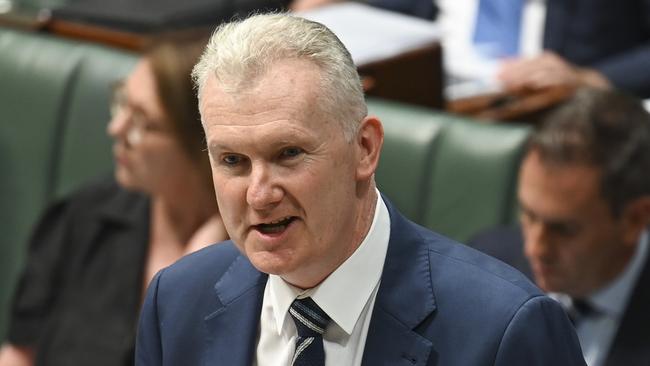
Labor will be forced to pass special laws to stop bosses being exposed to criminal penalties for breaching new right to disconnect orders, as employers warned new intractable bargaining laws would encourage strikes and “return industrial relations to the 1970s”.
In the wake of the employer attacks on the sweeping workplace changes that passed the Senate on Thursday, the Coalition suggested big business had been naive about Labor’s agenda ahead of the last election.
Ahead of the Senate passing the bill, the government tried to pass last-minute amendments after getting legal advice that the new laws would mean bosses could face potential criminal penalties if they breached the right to disconnect orders.
But in a bid to highlight Labor’s ”chaotic handling” of the proposed right to disconnect laws, the Coalition refused to grant leave and the bill, with the criminal penalty provisions, was passed by the Senate. Liberal senator Michaelia Cash said the “farce” had resulted in Labor “voting in favour of jail penalties for bosses”.
Workplace Relations Minister Tony Burke said the government “will legislate to fix this”, accusing the opposition of idiotic and irresponsible behaviour”.
“The Liberal Party has tried to expose employers to potential criminal penalties after throwing a pathetic tantrum in the Senate,” Mr Burke said. “It is difficult to imagine a situation where criminal penalties would ever be appropriate. And certainly it’s impossible for them to be used in the near future because the provision doesn’t start for six months.”
The battle over the right to disconnect came as business warned the “union-driven” workplace reforms would set back enterprise bargaining, encourage strikes, and drive up costs for consumers.
Big business said the bill’s new intractable bargaining rules were “one of the worst elements of the anti-business and anti-worker legislation”.
Business Council of Australia chief executive Bran Black said the rules, which mean arbitration of bargaining deadlocks by the Fair Work Commission cannot reduce workers’ existing conditions on a clause by clause basis, “up-ends decades of good faith bargaining where a package of better terms and conditions could be put on the table and traded off against operational and productivity improvements”.
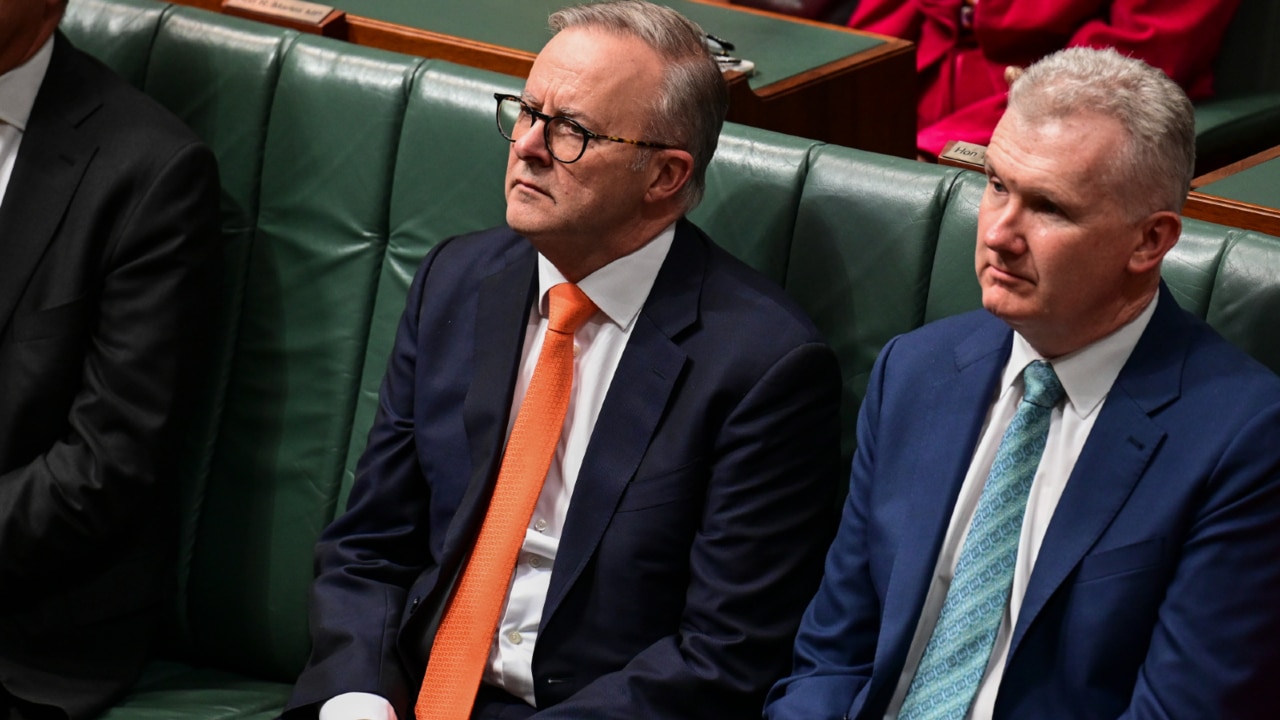
“Intractable bargaining is one of the worst elements of this anti-business and anti-worker legislation,” Mr Black said. “This policy takes our workplaces back to the 1970s where unions brought Australia to a grinding halt.
“It incentivises unions to strike and prolong disputes and that will cause economic harm and hit Australians with higher prices for goods when everyone is struggling.”
After scrutinising the intractable bargaining amendments, workplace law expert Andrew Stewart said he was concerned they would make companies more cautious about doing enterprise bargaining and could make it harder for unions and employers to reach agreement. Minerals Council of Australia chief executive Tania Constable said the bargaining changes would encourage unions to take strike action to trigger litigation “which they will be guaranteed to never lose”.
Ms Constable said the government’s three tranches of industrial relations legislation would act as a “deadweight” on the economy: “There can be no equivocation here: these changes will cost Australians dearly, increasing the price of groceries, building materials, transport, fuel, and food delivery, at the worst possible time.”
Australian Industry Group chief executive Innes Willox said it was difficult to properly convey the alarm that would be felt in industry. “Ultimately, far too many businesses will now simply give up on trying to obtain any form of productivity improvement through enterprise bargaining in the future,” he said.
“In many sectors it will mean employers will be stuck with unworkable agreement terms negotiated in very different times. They will have no ability to modernise their agreement to reflect changed working arrangements given they will be held hostage to obtaining union agreement to improvements and with no incentive for unions to be reasonable.”
Senator Cash said big business had been misled by Labor, suggesting corporate leaders were naive for running dead during the last election campaign. “What did big business actually think was going to happen?” she told Sky News. “The Australian Labor Party were born of the labour movement and the unions affiliated with it. They are the union movement. The union movement donate millions and millions and millions of dollars to the Australian Labor Party each year. “The Albanese government is there merely there to implement a union agenda.”
Food delivery platform DoorDash, which warned last year that the gig workers would force up delivery charges for consumers by more than 200 per cent, said it remained concerned about increased consumer costs. But Uber signalled the amendments made to the original bill had addressed concerns about the changes causing higher prices.
ACTU secretary Sally McManus said the passage of the industrial relations changes by the Senate – they will return to the House of Representatives next week to be passed – was “a great day for Australian workers”.
“We believe the new rights won in this legislation will deliver on the government’s promise to take action to improve job security for all workers,” she said. “Not only will casual and gig workers have more rights, protections, and choices, but all workers can look forward to a better working life.
“For the first time, all Australian workers will have the right to refuse unreasonable, unpaid work such as the expectation they will monitor and respond to emails out of hours in which they are being paid. The right to disconnect is fair and essential to maintaining a balance between work and personal time.”
Opposing the bill, Senate crossbencher Jacqui Lambie pushed for amendments to give female members in the CFMEU’s manufacturing division “freedom from John Setka” by allowing for a secret ballot of members to split from the union. The amendments were unsuccessful but she will seek again to get them supported.
Mr Black said the new casual conversion rules would create more red tape for employers and “that’s a cost that ultimately gets passed on”.
Employers and unions in the transport sector welcomed the bill’s “world-leading reform to enforce safer, fairer standards for transport workers including gig workers”. Transport Workers Union national secretary Michael Kaine said the passing of the bill was a watershed moment for the transport industry which had united to push for regulation to enforce safer, fairer and more sustainable standards.
Australian Road Transport Industrial Organisation secretary Peter Anderson said the legislation would bring positive change. “It is a triumph of our unity that this reform has now passed. Unlikely allies came together over the shared goal to make transport fair, sustainable and viable,” he said.
Additional reporting: Joe Kelly


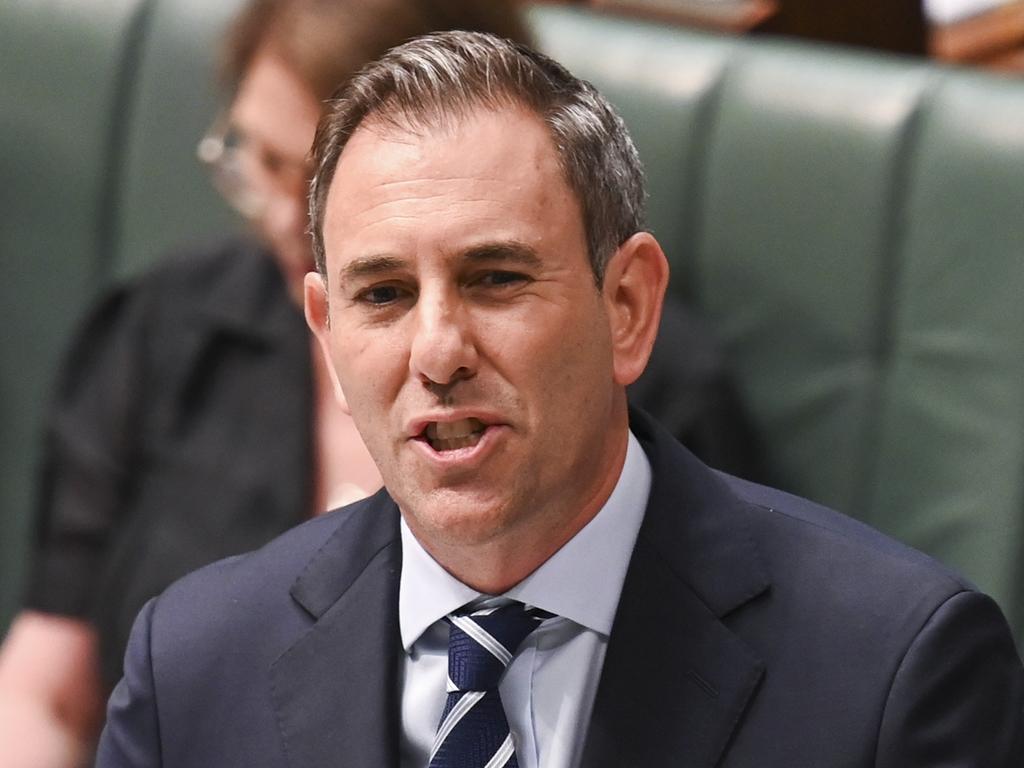
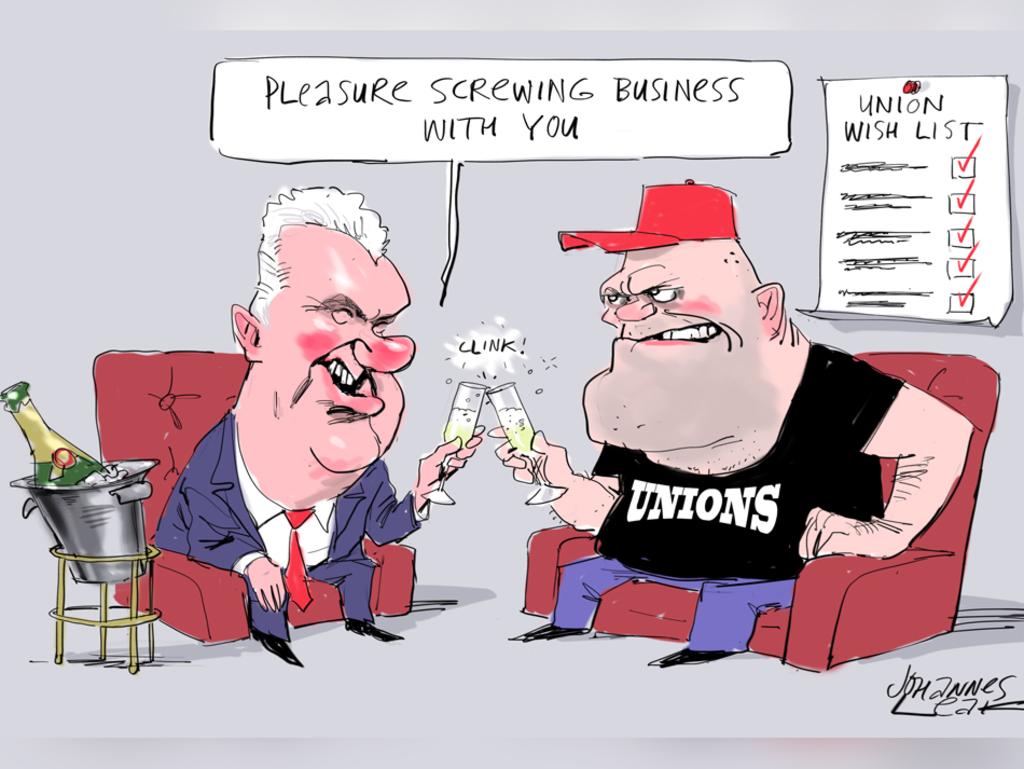
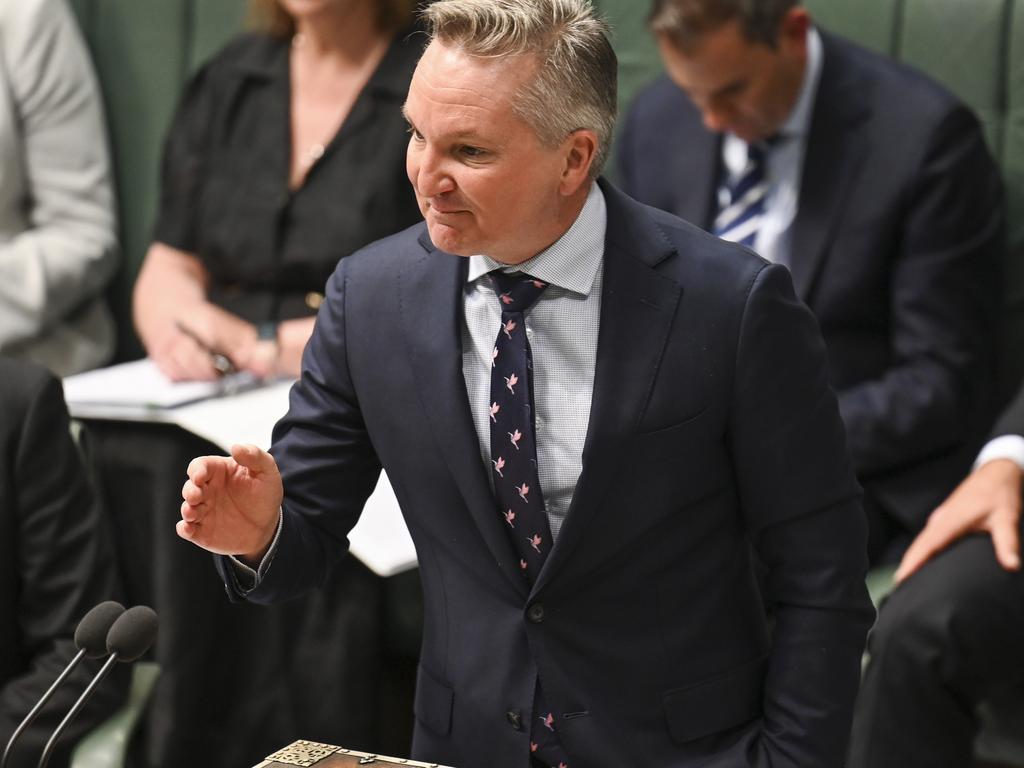



To join the conversation, please log in. Don't have an account? Register
Join the conversation, you are commenting as Logout